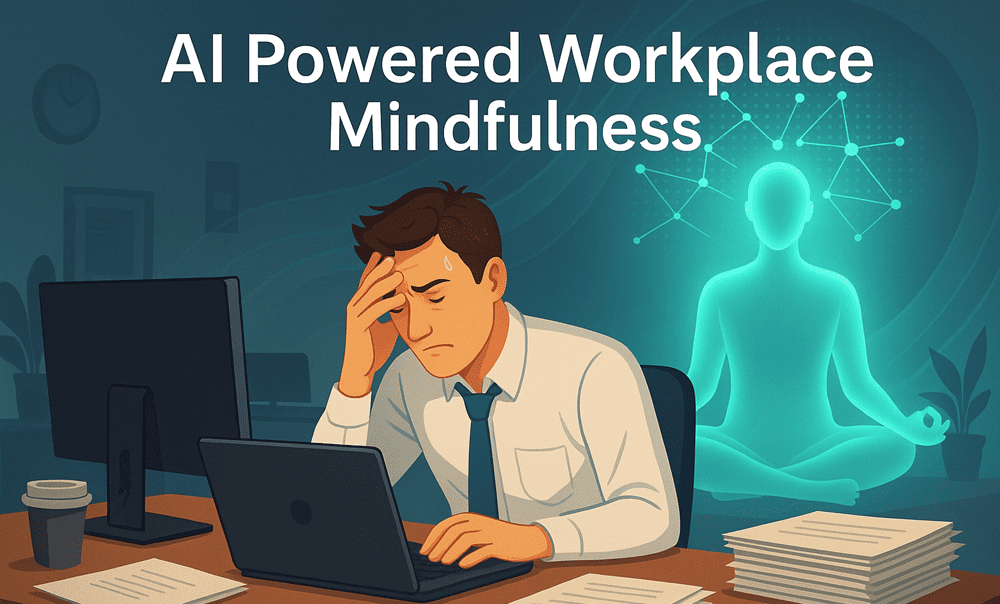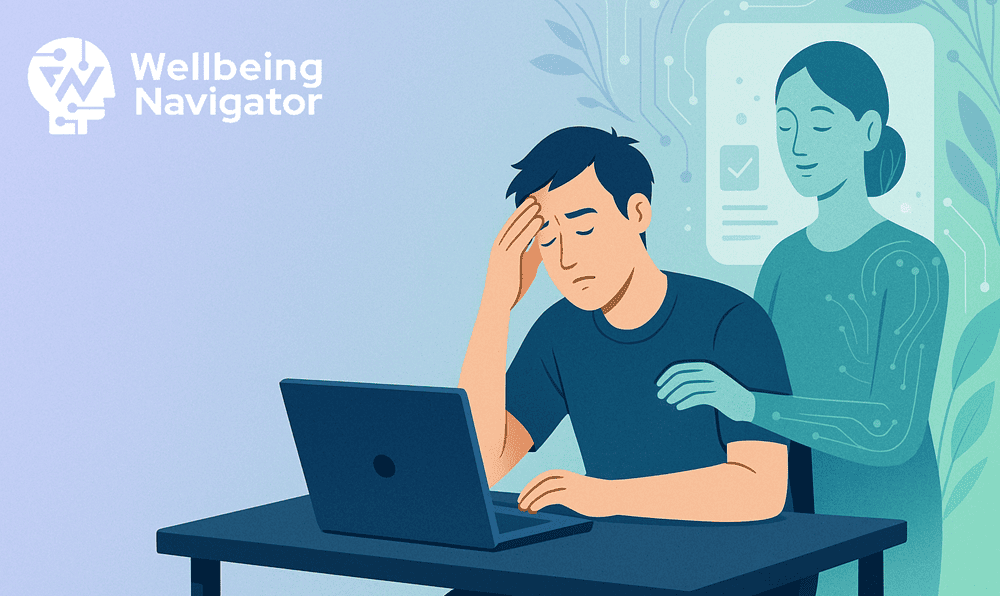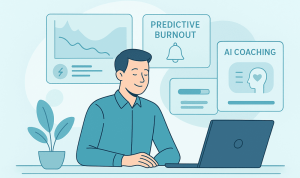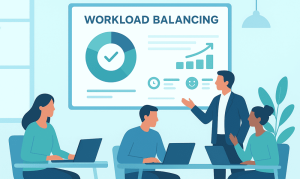The information technology sector faces an unprecedented mental health crisis. 83% of software developers report burnout, and burnout rates across tech have surged to 66% in 2025. The root causes? Return-to-office mandates, unmanageable workloads, and constant digital interruptions.
This isn’t just a wellbeing issue it’s an economic one. Burnout costs U.S. employers up to $300 billion annually, with IT roles particularly impacted due to high turnover, lost productivity, and rising attrition.
Amid this crisis, AI-powered wellness platforms like Coach Nova are emerging as proactive, 24/7 support systems that understand tech workers’ unique pressures — and deliver results.
Unique Stressors in the IT Workplace
- Constant Interruptions: Developers face an average of 275 digital interruptions daily (Microsoft, 2025).
- Unclear Goals & Workload: 47% cite high workload, 31% cite inefficient processes, 29% face unclear goals.
- Technostress: Digital overwhelm, complex interfaces, and the expectation of 24/7 availability cause emotional exhaustion, anxiety, and sleep disruption.
How AI Solves IT Burnout at the Root

1. Real-Time Stress Monitoring
AI-powered workplace wellness systems can track user behavior like overwork patterns, calendar saturation, and sentiment in internal comms to flag early burnout risks. These systems can:
- Alert managers to at-risk team members (with privacy protection)
- Offer in-the-moment stress reduction exercises
- Recommend rebalancing workloads
2. 24/7 Personalized Coaching with Coach Nova
Coach Nova uses emotional intelligence algorithms to provide:
- Adaptive coaching that changes in real time based on mood and language
- Micro-coaching sessions to manage daily stressors like overload or isolation
- Outcome tracking to support goal-setting, stress reduction, and long-term growth
Related Post: Why AI Is the Future of Stress Management in High-Risk Jobs
Companies using Coach Nova have seen:
- ↑ 25% increase in focus and clarity
- ↓ 31% drop in stress-related absenteeism within six months
3. AI-Backed Predictive Scheduling Support
AI can:
- Detect scheduling clashes and burnout indicators in calendar patterns
- Suggest optimal times for deep work vs. meetings
- Learn individual energy rhythms to recommend better workflows
Clinical Evidence: AI Actually Works
- AI-based mental health tools reduce symptoms of anxiety (-29%) and depression (-34%) more effectively than traditional methods
- A meta-analysis shows large effect sizes for AI-guided support: Hedges’ g = 0.64 for depression, 0.7 for distress
- 9 in 10 users report feeling understood by AI coaches and say they’d use them again
Business Case: ROI that IT Leaders Can’t Ignore
- $1 invested in mental health = $5 ROI in productivity
- Companies using AI-backed wellness tools have seen:
- ↓ 25% in sick days
- ↑ 23% in engagement
- ↑ 21% in profitability
- ↓ 25% in sick days
- AI wellness programs deliver up to 337% ROI by year 5 via reduced turnover, lower absenteeism, and higher productivity
Implementing AI Wellness in IT Teams

Phase 1: Assess
- Identify key burnout metrics
- Run surveys and pulse checks
- Align goals with HR and engineering leaders
Phase 2: Select & Customize Platform
- Choose a platform like Coach Nova that integrates seamlessly with internal tools
- Prioritize privacy, personalization, and measurable outcomes
Phase 3: Pilot with Team
- Train users and gather feedback
- Monitor KPIs like engagement, absenteeism, and mood scores
Best Practices for Success
- Ensure user trust through clear data privacy and explainable AI
- Address technostress directly through coaching modules
- Combine AI with human escalation pathways for high-risk cases
Future-Proofing Mental Health in TechAI will soon:
- Predict burnout weeks in advance using behavior + biometric signals
- Suggest smart workload redistribution in team dashboards
- Power hybrid models where AI handles daily mental health nudges and humans handle complex cases
Final Thought: Code Doesn’t Burn Out. People Do.
The IT industry is built on innovation. But that innovation must extend to protecting the minds behind the machines.
AI isn’t here to replace therapy. It’s here to scale support.
And with platforms like Coach Nova, organizations can ensure that even the busiest engineer has a personalized, proactive wellbeing companion — not someday, but today.
Explore how Wellbeing Navigator can reduce burnout and improve performance across your IT teams.
www.wellbeingnavigator.ai







